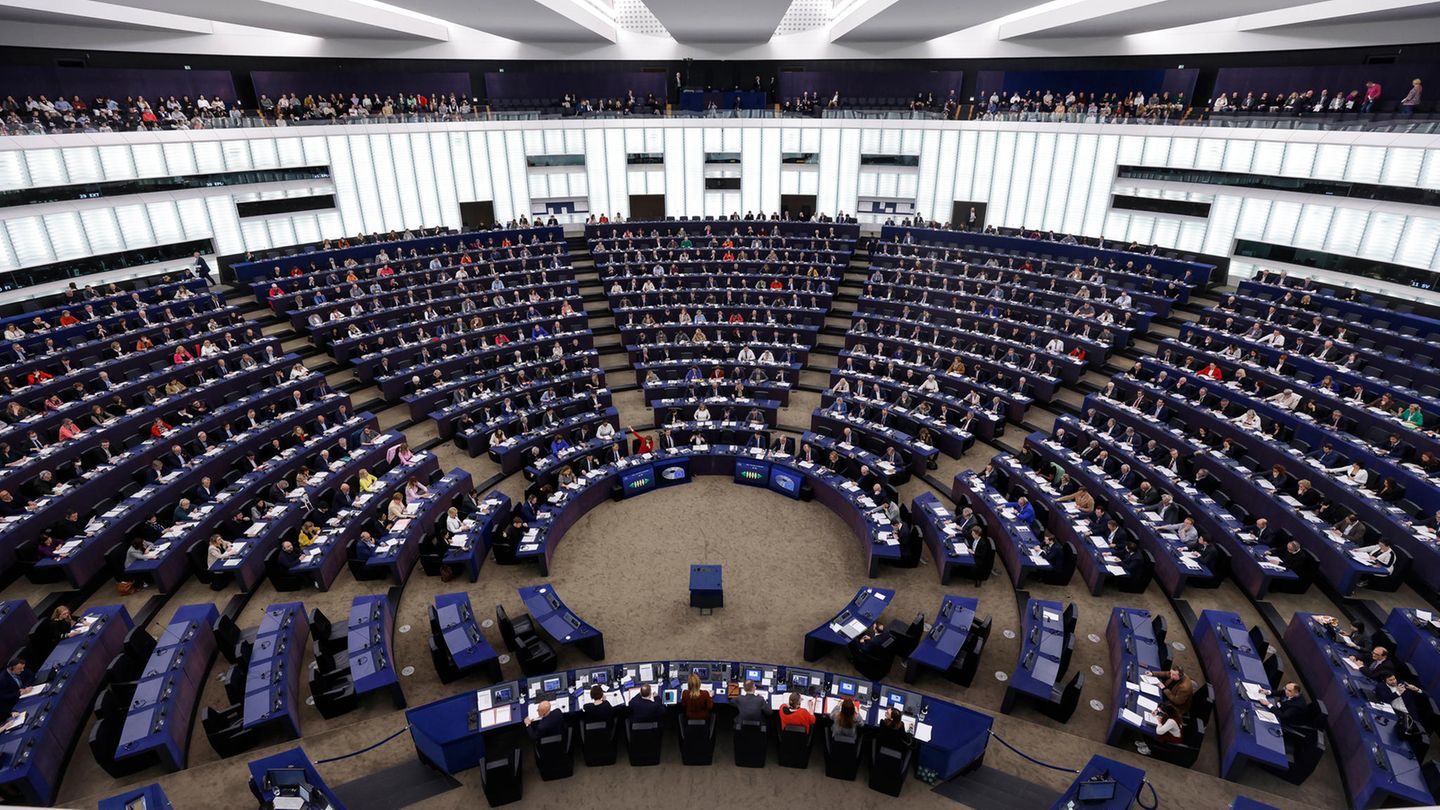Starting Thursday, Europe will elect a new European Parliament for the next five years. What concerns and political goals does the EU have to face? An overview.
The European elections in the 27 member states of the European Union (EU) begin on June 6th, and in Germany the vote will take place on June 9th. A total of 720 seats in the European Parliament for the next five years are at stake. The newly composed parliament will play a decisive role in the development and implementation of political goals.
Together with the heads of state and government of the member states (the so-called European Council) and the Commission (the EU’s executive body), Parliament negotiates and decides on laws that determine European policy and regulate the EU market with almost 450 million people.
Below is an overview of the goals that will determine the coming legislative period:
A climate-neutral EU by 2050
The aim of the climate protection agenda is for the EU to be climate neutral by 2050. This means that only as much CO2 is emitted in the Union as the same amount of compensation is taken elsewhere. After taking office in 2019, EU Commission President Ursula von der Leyen spoke of a “man on the moon moment” for Europe with regard to the so-called Green Deal and promised 100 billion euros in investments to protect the environment over the coming years. In the run-up to this year’s election and in view of the farmers’ protests of the past few months, however, her EPP group has become more skeptical of the green initiative. At the beginning of the year, EPP group leader Manfred Weber declared that after the European elections, the content of the previous agenda would be “put to the test”. However, the goal of climate neutrality by 2050 would be maintained.
An Energy Union
According to the Commission, the energy transition within the EU is to be supported by creating an Energy Union. The aim is to achieve a sustainable and secure energy supply at affordable prices for Europe and its citizens. The EU Commission presented a strategy for this in 2015. Security of supply, decarbonization and an integrated internal energy market are central to this. Russia’s attack on Ukraine led to an unprecedented energy crisis in Europe in 2022, putting the goal high on the agenda again.
Strengthening competitiveness
In order to become competitive with the USA and China in matters of green technologies and artificial intelligence (AI), the EU’s internal market is to be strengthened. To this end, former Italian Prime Minister Enrico Letta presented proposals during a summit in April. The 27 heads of state and government then agreed on reforms in nine areas. These included a rapid improvement in the opportunities for EU-wide investment in shares and the creation of a simple cross-border savings product for small investors.
However, it remained unclear where the money for the reforms would come from. In his report, Letta estimated that the EU would need around 650 billion euros in private funds annually by 2030 to enable the transition from fossil fuels to renewable energy sources and the digitalization of the economy. The key to financing could be the integration of capital markets in Europe, which has been planned for years, said Letta.
A capital markets union
The so-called capital markets union is intended to provide financing and thus ensure that the set goals are achieved. In addition, the fragmented financial markets in Europe are seen as a major competitive disadvantage compared to the USA or Asia. The EU has been talking about the issue for many years. In practice, a capital markets union is opposed by very different national laws – including those on bankruptcies, the taxation of capital gains or IPOs. France would like to start with a small group of EU states, while Germany is pushing for a broader approach with all EU states.
At the EU summit in April, all heads of state and government declared their support for the capital markets union. However, several smaller states expressed reservations about elements such as European financial supervision or the harmonization of corporate taxation. A capital markets union must be a priority in order to mobilize more private capital for investment, said Chancellor Olaf Scholz last month. He will present reform proposals together with French President Emmanuel Macron.
Strengthening the arms industry
The current EU Commission is proposing a multi-billion euro program for the European arms industry. The 1.5 billion euros targeted for this will be financed from the EU budget from 2025 to 2027, the Commission announced in March. It is also calling on EU states to procure at least 40 percent of their military equipment jointly by 2030. Part of the profits from frozen Russian assets will also be used to finance arms purchases for Ukraine. In addition, Commission President von der Leyen wants to create the post of a separate defense commissioner if she is to serve a second term. However, German government spokesman Steffen Hebestreit spoke of a “certain skepticism” on the part of the German government about such plans.

Tourist magnet? No way! Victor Orban’s hometown is a million-dollar grave for the EU
02:17 min
A long-term budget
Together with the national governments, the EU Parliament will negotiate and decide on the medium-term financial planning from 2028 to 2034. This currently stands at around 1.1 trillion euros. However, observers and experts expect a possible increase and a reallocation of funds. This is mainly due to changed spending priorities and a possible EU expansion in the coming years through the accession of countries such as Montenegro or North Macedonia.
Internal reforms
Top EU politicians and some heads of state and government are calling for structural reforms before large countries such as Ukraine can join the bloc. Parliament will play an important role in shaping such reforms over the next five years. The focus will be on redesigning the common agricultural policy and harmonizing living standards in the various member states. Chancellor Scholz is also one of the supporters of such reforms. He is calling in particular for an end to the principle of unanimity in foreign and security policy, for example, as this leads to individual countries blocking or delaying important decisions.
Source: Stern
I have been working in the news industry for over 6 years, first as a reporter and now as an editor. I have covered politics extensively, and my work has appeared in major newspapers and online news outlets around the world. In addition to my writing, I also contribute regularly to 24 Hours World.




